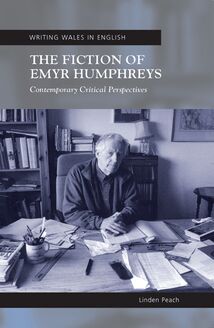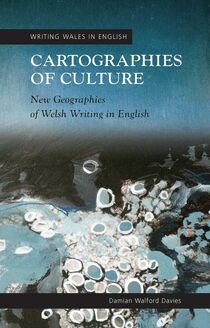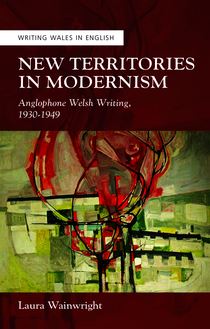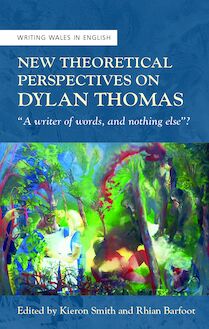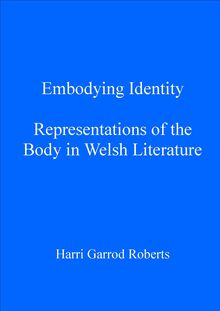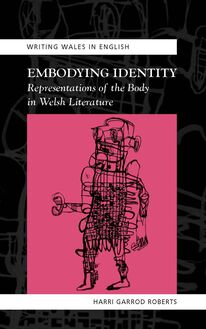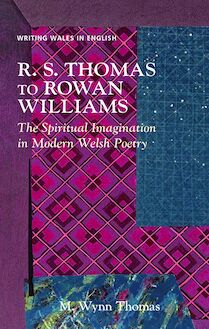-
 Univers
Univers
-
 Ebooks
Ebooks
-
 Livres audio
Livres audio
-
 Presse
Presse
-
 Podcasts
Podcasts
-
 BD
BD
-
 Documents
Documents
-
- Cours
- Révisions
- Ressources pédagogiques
- Sciences de l’éducation
- Manuels scolaires
- Langues
- Travaux de classe
- Annales de BEP
- Etudes supérieures
- Maternelle et primaire
- Fiches de lecture
- Orientation scolaire
- Méthodologie
- Corrigés de devoir
- Annales d’examens et concours
- Annales du bac
- Annales du brevet
- Rapports de stage
La lecture à portée de main
Vous pourrez modifier la taille du texte de cet ouvrage
Découvre YouScribe en t'inscrivant gratuitement
Je m'inscrisDécouvre YouScribe en t'inscrivant gratuitement
Je m'inscrisEn savoir plus
Vous pourrez modifier la taille du texte de cet ouvrage
En savoir plus

Description
The Brexit debates confirmed how Wales’s relationship to Europe has for too long been discussed exclusively, narrowly and suffocatingly in terms of its social, political and economic aspects. As a contrast, this volume sets out to explore the rich, inventive and exhilarating spectrum of pro-European sentiment evident from 1848 to 1980 in the writings of Welsh intellectuals and creative writers. It ranges from the era of O. M. Edwards, through the interwar period when both right wing (Saunders Lewis) and left wing (Cyril Cule) ideologies clashed, to the post-war age when major writers such as Emyr Humphreys and Raymond Williams became influential. This study clearly demonstrates that far from being insular and parochial, Welsh culture has long been hospitably internationalist. As the very title Eutopia concedes, there have of course been frequently utopian aspects to Wales’s dreams of Europe. However, while some may choose to dismiss them as examples of mere wishful thinking, others may fruitfully appreciate their aspirational and inspirational aspects.
Series Editors’ Preface
Epigraphs
Preface
Introduction
1 The Europe of Welsh Nonconformity
2 The Welsh Whig Version of Europe
3 The Little Five-Foot-Five Nations
4 The Europe of the Cultural Right
5 From Spain to Scandinavia
6 Europe, West to East
7 The Female Europa, the Rhondda Europeans and Welsh Symbolism
8 Surrealism, the War and After
9 Onwards Towards Union
Index
Sujets
Informations
| Publié par | University of Wales Press |
| Date de parution | 15 janvier 2021 |
| Nombre de lectures | 0 |
| EAN13 | 9781786836168 |
| Langue | English |
| Poids de l'ouvrage | 1 Mo |
Informations légales : prix de location à la page 0,1500€. Cette information est donnée uniquement à titre indicatif conformément à la législation en vigueur.
Extrait
Eutopia
WRITING WALES IN ENGLISH
CREW series of Critical and Scholarly Studies
General Editors: Kirsti Bohata and Daniel G. Williams ( CREW , Swansea University)
This CREW series is dedicated to Emyr Humphreys, a major figure in the literary culture of modern Wales, a founding patron of the Centre for Research into the English Literature and Language of Wales . Grateful thanks are due to the late Richard Dynevor for making this series possible.
Other titles in the series
Stephen Knight, A Hundred Years of Fiction (978-0-7083-1846-1)
Barbara Prys-Williams, Twentieth-Century Autobiography (978-0-7083-1891-1)
Kirsti Bohata, Postcolonialism Revisited (978-0-7083-1892-8)
Chris Wigginton, Modernism from the Margins (978-0-7083-1927-7)
Linden Peach, Contemporary Irish and Welsh Women s Fiction (978-0-7083-1998-7)
Sarah Prescott, Eighteenth-Century Writing from Wales: Bards and Britons (978-0-7083-2053-2)
Hywel Dix, After Raymond Williams: Cultural Materialism and the Break-Up of Britain (978-0-7083-2153-9)
Matthew Jarvis, Welsh Environments in Contemporary Welsh Poetry (978-0-7083-2152-2)
Harri Garrod Roberts, Embodying Identity: Representations of the Body in Welsh Literature (978-0-7083-2169-0)
Diane Green, Emyr Humphreys: A Postcolonial Novelist (978-0-7083-2217-8)
M. Wynn Thomas, In the Shadow of the Pulpit: Literature and Nonconformist Wales (978-0-7083-2225-3)
Linden Peach, The Fiction of Emyr Humphreys: Contemporary Critical Perspectives (978-0-7083-2216-1)
Daniel Westover, R. S. Thomas: A Stylistic Biography (978-0-7083-2413-4)
Jasmine Donahaye, Whose People? Wales, Israel, Palestine (978-0-7083-2483-7)
Judy Kendall, Edward Thomas: The Origins of His Poetry (978-0-7083-2403-5)
Damian Walford Davies, Cartographies of Culture: New Geographies of Welsh Writing in English (978-0-7083-2476-9)
Daniel G. Williams, Black Skin, Blue Books: African Americans and Wales 1845-1945 (978-0-7083-1987-1)
Andrew Webb, Edward Thomas and World Literary Studies: Wales, Anglocentrism and English Literature (978-0-7083-2622-0)
Alyce von Rothkirch, J. O. Francis, realist drama and ethics: Culture, place and nation (978-1-7831-6070-9)
Rhian Barfoot, Liberating Dylan Thomas: Rescuing a Poet from Psycho-Sexual Servitude (978-1-7831-6184-3)
Daniel G. Williams, Wales Unchained: Literature, Politics and Identity in the American Century (978-1-7831-6212-3)
M. Wynn Thomas, The Nations of Wales 1890-1914 (978-1-78316-837-8)
Richard McLauchlan, Saturday s Silence: R. S. Thomas and Paschal Reading (978-1-7831-6920-7)
Bethan M. Jenkins, Between Wales and England: Anglophone Welsh Writing of the Eighteenth Century (978-1-7868-3029-6)
M. Wynn Thomas, All that is Wales: The Collected Essays of M. Wynn Thomas (978-1-7868-3088-3)
Laura Wainwright, New Territories in Modernism: Anglophone Welsh Writing , 1930-1949 (978-1-7868-3217-7)
Siriol McAvoy, Locating Lynette Roberts: Always Observant and Slightly Obscure (978-1-7868-3382-2)
Linden Peach, Pacifism, Peace and Modern Welsh Writing (978-1-7868-3402-7)
Kieron Smith, John Ormond s Organic Mosaic (978-1-7868-3488-1)
Georgia Burdett and Sarah Morse (eds), Fight and Flight: Essays on Ron Berry (978-1-7868-3528-4)
Eutopia
Studies in Cultural Euro-Welshness, 1850-1980
WRITING WALES IN ENGLISH
M. Wynn Thomas
M. Wynn Thomas, 2021
All rights reserved. No part of this book may be reproduced in any material form (including photocopying or storing it in any medium by electronic means and whether or not transiently or incidentally to some other use of this publication) without the written permission of the copyright owner. Applications for the copyright owner s written permission to reproduce any part of this publication should be addressed to the University of Wales Press, University Registry, King Edward VII Avenue, Cardiff CF10 3NS.
www.uwp.co.uk
British Library CIP Data A catalogue record for this book is available from the British Library.
ISBN: 978-1-78683-614-4 e-ISBN: 978-1-78683-616-8
The right of M. Wynn Thomas to be identified as author of this work has been asserted in accordance with sections 77 and 79 of the Copyright, Designs and Patents Act 1988.
Cover image: Richard Huws, Beetham Plaza Fountain, Liverpool (1967), detail photograph Alan Cookson.
The publisher has no responsibility for the persistence or accuracy of URLs for any external or third-party internet websites referred to in this book, and does not guarantee that any content on such websites is, or will remain, accurate or appropriate.
Contents
Series Editors Preface
Epigraphs
Preface
Introduction
1 The Europe of Welsh Nonconformity
2 The Welsh Whig Version of Europe
3 The Little Five-Foot-Five Nations
4 The Europe of the Cultural Right in Wales
5 From Spain to Scandinavia
6 Europe, West to East
7 The Female Europa, the Rhondda Europeans and Welsh Symbolism
8 Surrealism, the War and After
9 Onwards Towards Union
Notes
Series Editors Preface
The aim of this series, since its founding in 2004 by Professor M. Wynn Thomas, is to publish scholarly and critical work by established specialists and younger scholars that reflects the richness and variety of the English-language literature of modern Wales. The studies published so far have amply demonstrated that concepts, models and discourses current in the best contemporary studies can illuminate aspects of Welsh culture, and have also foregrounded the potential of the Welsh example to draw attention to themes that are often neglected or marginalised in anglophone cultural studies. The series defines and explores that which distinguishes Wales s anglophone literature, challenges critics to develop methods and approaches adequate to the task of interpreting Welsh culture, and invites its readers to locate the process of writing Wales in English within comparative and transnational contexts.
Professor Kirsti Bohata and Professor Daniel G. Williams
Founding Editor: Professor M. Wynn Thomas (2004-15)
CREW ( Centre for Research into the English Literature and Language of Wales ) Swansea University
Richard Huws, Beetham Plaza Fountain, Liverpool.
Richard Huws (1902-80) was an artist and designer of European outlook. Born on Anglesey, he was influenced by the unifying design vision of the Dessau Bauhaus during his period of study at the Vienna Kunstgewerbeschule (school of applied arts) between 1927 and 1931, before returning to live and work in London. Among his several designs for kinetic water sculpture, the Beetham Plaza Fountain (or Bucket Fountain ) is the last surviving, completed in 1967. (DJ)
Hanes gwareiddiad Ewrop, hanes delfryd ysbrydol ydyw.
(Saunders Lewis)
Q UESTIONER : The Italian artist Michelangelo was born in which European country?
C ONTESTANT : France.
The Time it Takes, BBC1 (with thanks to Dumb Britain , Private Eye )
To be European, we need first to be more Welsh.
(Emyr Humphreys, Conversations and Reflections )
Preface
This volume is intended as a corrective to the habit, long established but exacerbated by the prolonged Brexit debates, of considering Wales s relationship to Europe by concentrating exclusively, narrowly and suffocatingly, on its social, political and economic aspects.
The intention here is to explore the rich and exhilarating spectrum of pro-European sentiment evident for more than a century in the writings of Welsh intellectuals and creative writers. And the hope in so doing is that this disclosure will put paid, once and for all, to the tired, clich d view of Welsh culture as insular and parochial. To the contrary, not only has Wales long welcomed very substantial inward migration, it has also been hospitably internationalist, driven in such direction by a mixture of curiosity, necessity and deep conviction.
As the very title Eutopia concedes, there have of course often been utopian aspects of Wales s dreams of Europe. But while some may therefore choose to dismiss them as examples of mere wishful thinking, others may fruitfully appreciate their aspirational and inspirational features.
Introduction
While I was writing this book, a memory from over thirty years ago returned to me with some force, and with some point. I was at that time a member of the Arts Council of Wales, and chair of its influential Literature Committee, and it was in this latter capacity that I had occasion to preside over an international conference at Aberystwyth attended by representatives of many of the less used languages of Europe - and indeed beyond. There were, I recall, delegates there from such states as Greece and Sri Lanka, from aspiring or re-emergent countries such as Ukraine and Georgia, and from such small and distinctly marginal cultures as that of Friesland.
Several of them seemed to me to speak to my own condition, as a Welsh-speaker struggling to survive in an anglophone and anglocentric environment. The Georgians and Ukrainians represented countries that were at that time politically and culturally subordinate to the dictates of the Soviet Union, and most particularly to the will of Russia. The Greeks - whom I never would have expected to attend - spoke of their anxiety at the growing power of English as promoted globally by Anglo-American culture. As for the Friesans, theirs, they freely admitted, was a language already largely dead as a contemporary social medium. But as they were creative writers, they found a paradoxical freedom in this circumstance. It meant, they explained, that they could experiment with the language at will, without worrying about the social consequences.
Most illuminating of all, however, was the realisation that came to me when I accompanied several of the delegates to an Aberystwyth pub. As we sat there happily socialising, it suddenly struck me that while I felt I was in congenial company amongst these bilingual and bicultural Europeans, my English-speaking compatriots, by whom I found myself surrounded, could well be feeling distinctly
-
 Univers
Univers
-
 Ebooks
Ebooks
-
 Livres audio
Livres audio
-
 Presse
Presse
-
 Podcasts
Podcasts
-
 BD
BD
-
 Documents
Documents
-
Jeunesse
-
Littérature
-
Ressources professionnelles
-
Santé et bien-être
-
Savoirs
-
Education
-
Loisirs et hobbies
-
Art, musique et cinéma
-
Actualité et débat de société
-
Jeunesse
-
Littérature
-
Ressources professionnelles
-
Santé et bien-être
-
Savoirs
-
Education
-
Loisirs et hobbies
-
Art, musique et cinéma
-
Actualité et débat de société
-
Actualités
-
Lifestyle
-
Presse jeunesse
-
Presse professionnelle
-
Pratique
-
Presse sportive
-
Presse internationale
-
Culture & Médias
-
Action et Aventures
-
Science-fiction et Fantasy
-
Société
-
Jeunesse
-
Littérature
-
Ressources professionnelles
-
Santé et bien-être
-
Savoirs
-
Education
-
Loisirs et hobbies
-
Art, musique et cinéma
-
Actualité et débat de société
- Cours
- Révisions
- Ressources pédagogiques
- Sciences de l’éducation
- Manuels scolaires
- Langues
- Travaux de classe
- Annales de BEP
- Etudes supérieures
- Maternelle et primaire
- Fiches de lecture
- Orientation scolaire
- Méthodologie
- Corrigés de devoir
- Annales d’examens et concours
- Annales du bac
- Annales du brevet
- Rapports de stage
